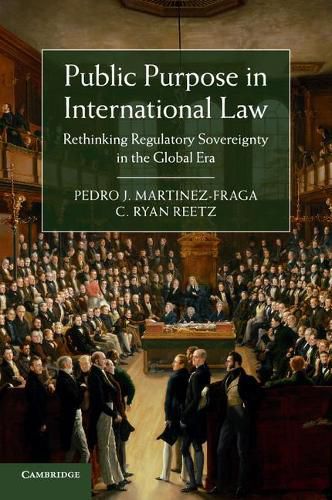Readings Newsletter
Become a Readings Member to make your shopping experience even easier.
Sign in or sign up for free!
You’re not far away from qualifying for FREE standard shipping within Australia
You’ve qualified for FREE standard shipping within Australia
The cart is loading…






This text explores how the public purpose doctrine reconciles the often conflicting, but equally binding, obligations that states have to engage in regulatory sovereignty while honoring host-state obligations to protect foreign investment. The work examines the multiple permutations and iterations of the public purpose doctrine and concludes that this principle needs to be reconceptualized to meet the imperatives of economic globalization and of a new paradigm of sovereignty that is based on the interdependence, and not independence, of states. It contends that the historical expression of the public purpose doctrine in customary and conventional international law is fraught with fundamental flaws that, if not corrected, will give rise to disparities in the relationship between investors and states, asymmetries with respect to industrialized nations and developing states, and, ultimately, process legitimacy concerns.
$9.00 standard shipping within Australia
FREE standard shipping within Australia for orders over $100.00
Express & International shipping calculated at checkout
This text explores how the public purpose doctrine reconciles the often conflicting, but equally binding, obligations that states have to engage in regulatory sovereignty while honoring host-state obligations to protect foreign investment. The work examines the multiple permutations and iterations of the public purpose doctrine and concludes that this principle needs to be reconceptualized to meet the imperatives of economic globalization and of a new paradigm of sovereignty that is based on the interdependence, and not independence, of states. It contends that the historical expression of the public purpose doctrine in customary and conventional international law is fraught with fundamental flaws that, if not corrected, will give rise to disparities in the relationship between investors and states, asymmetries with respect to industrialized nations and developing states, and, ultimately, process legitimacy concerns.